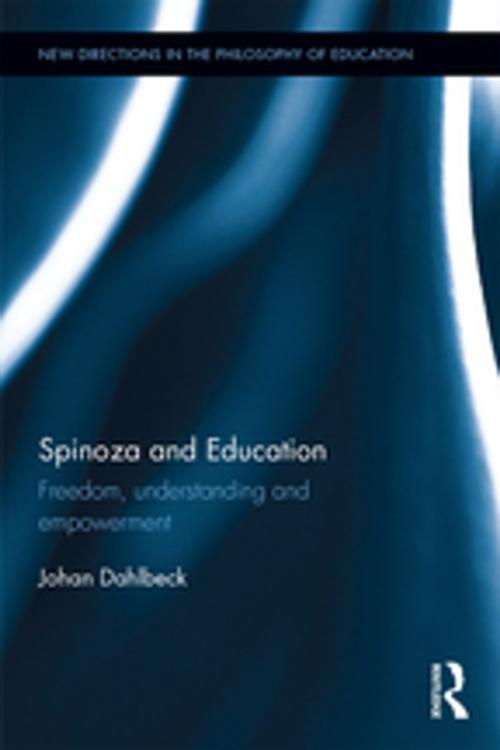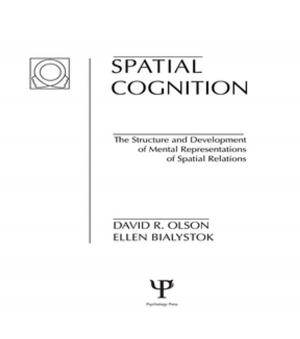Spinoza and Education
Freedom, understanding and empowerment
Nonfiction, Reference & Language, Education & Teaching, Educational Theory, Philosophy & Social Aspects| Author: | Johan Dahlbeck | ISBN: | 9781317394341 |
| Publisher: | Taylor and Francis | Publication: | November 25, 2016 |
| Imprint: | Routledge | Language: | English |
| Author: | Johan Dahlbeck |
| ISBN: | 9781317394341 |
| Publisher: | Taylor and Francis |
| Publication: | November 25, 2016 |
| Imprint: | Routledge |
| Language: | English |
Spinoza and Education offers a comprehensive investigation into the educational implications of Spinoza’s moral theory. Taking Spinoza’s naturalism as its point of departure, it constructs a considered account of education, taking special care to investigate the educational implications of Spinoza’s psychological egoism. What emerges is a counterintuitive form of education grounded in the egoistic striving of the teacher to persevere and to flourish in existence while still catering to the ethical demands of the students and the greater community.
In providing an educational reading of Spinoza’s moral theory, this book sets up a critical dialogue between educational theory and recent studies which highlight the centrality of ethics in Spinoza’s overall philosophy. By placing his work in a contemporary educational context, chapters explore a counterintuitive conception of education as an ethical project, aimed at overcoming the desire to seek short-term satisfaction and troubling the influential concept of the student as consumer. This book also considers how education, from a Spinozistic point of view, may be approached in terms of a kind of cognitive therapy serving to further a more scientifically adequate understanding of the world and aimed at combating prejudices and superstition.
Spinoza and Education demonstrates that Spinoza’s moral theory can further an educational ideal, where notions of freedom and self-preservation provide the conceptual core of a coherent philosophy of education. As such, it will appeal to researchers, academics and postgraduate students in the fields of philosophy of education, theory of education, critical thinking, philosophy, ethics, and Spinoza studies.
Spinoza and Education offers a comprehensive investigation into the educational implications of Spinoza’s moral theory. Taking Spinoza’s naturalism as its point of departure, it constructs a considered account of education, taking special care to investigate the educational implications of Spinoza’s psychological egoism. What emerges is a counterintuitive form of education grounded in the egoistic striving of the teacher to persevere and to flourish in existence while still catering to the ethical demands of the students and the greater community.
In providing an educational reading of Spinoza’s moral theory, this book sets up a critical dialogue between educational theory and recent studies which highlight the centrality of ethics in Spinoza’s overall philosophy. By placing his work in a contemporary educational context, chapters explore a counterintuitive conception of education as an ethical project, aimed at overcoming the desire to seek short-term satisfaction and troubling the influential concept of the student as consumer. This book also considers how education, from a Spinozistic point of view, may be approached in terms of a kind of cognitive therapy serving to further a more scientifically adequate understanding of the world and aimed at combating prejudices and superstition.
Spinoza and Education demonstrates that Spinoza’s moral theory can further an educational ideal, where notions of freedom and self-preservation provide the conceptual core of a coherent philosophy of education. As such, it will appeal to researchers, academics and postgraduate students in the fields of philosophy of education, theory of education, critical thinking, philosophy, ethics, and Spinoza studies.















